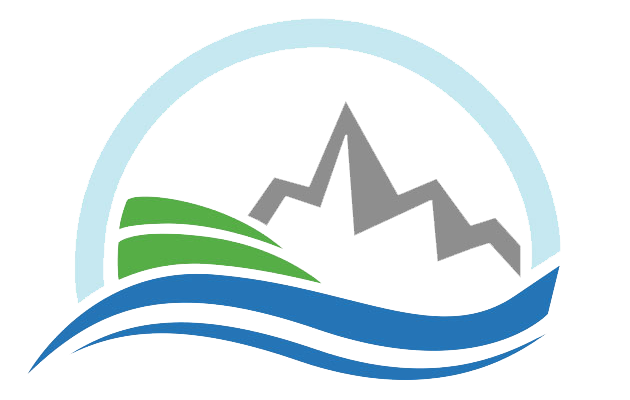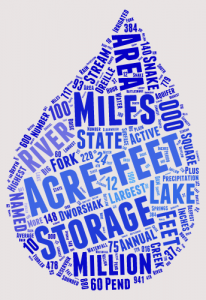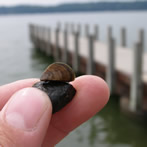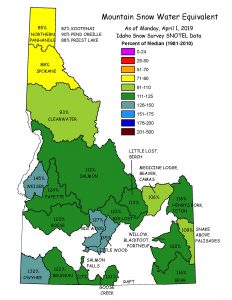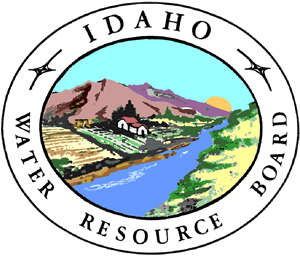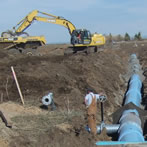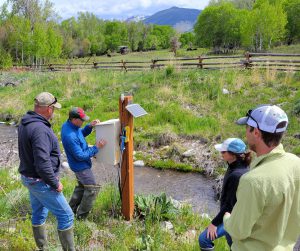
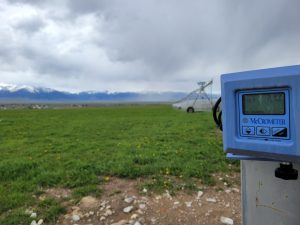
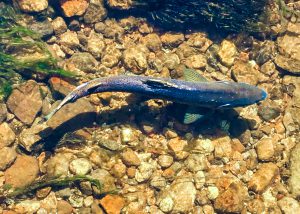
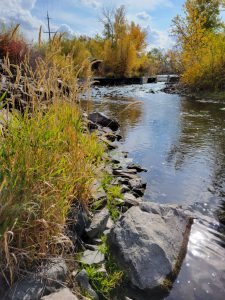
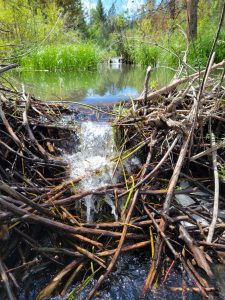
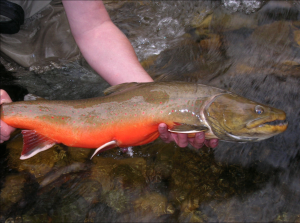
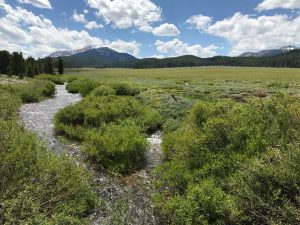
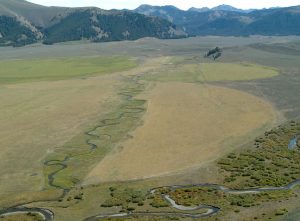
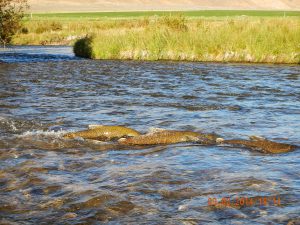

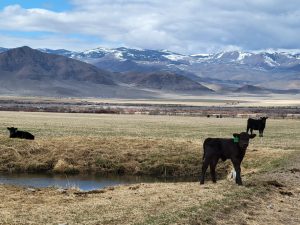
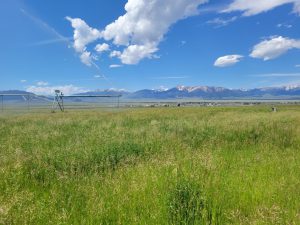
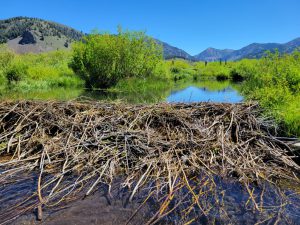
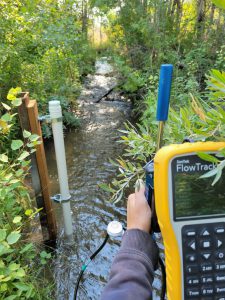
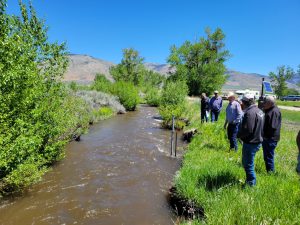
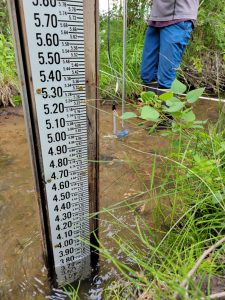

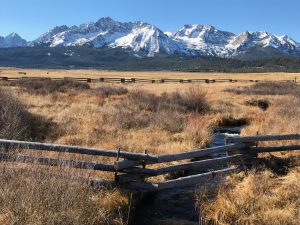
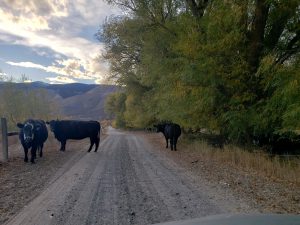
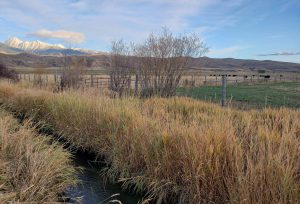
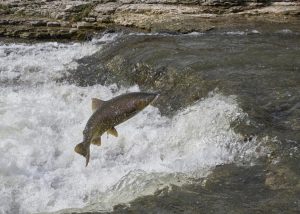

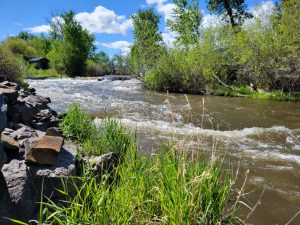
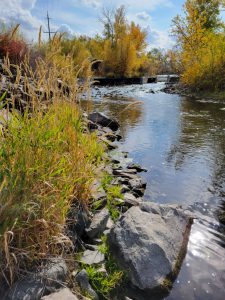
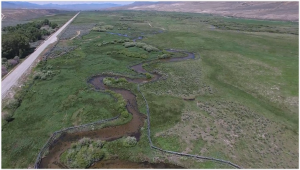
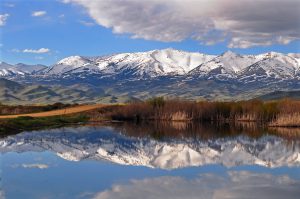
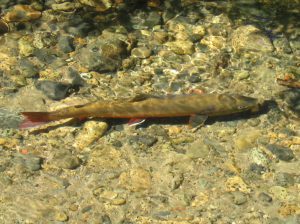
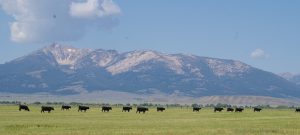
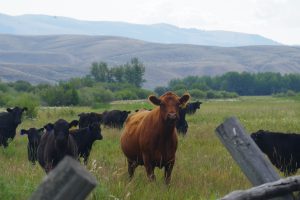
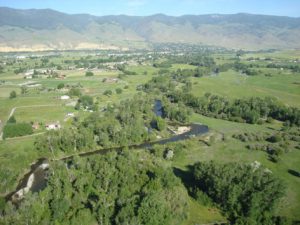
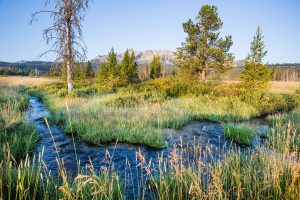

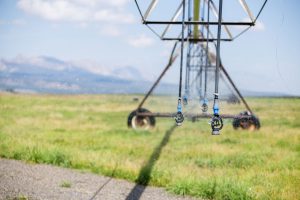
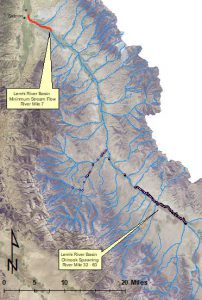
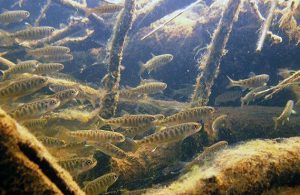
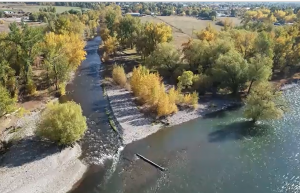
The Idaho Water Resource Board (IWRB) implemented the Idaho Water Transactions Program (IWTP) in 2003 as a Qualified Local Entity of the Columbia Basin Water Transactions Program (CBWTP).
The CBWTP and the IWTP help conserve, restore, and enhance aquatic and riparian habitats to recovery anadromous fish populations, while protecting private property rights and preserving Idaho’s ranching economy.
For over twenty years, the CBWTP has supported the IWRB’s efforts to develop innovative, voluntary strategies that increase flows to streams and rivers in the Upper Salmon River Basin where lawful irrigation withdrawals are negatively impacting recovery efforts of Threatened salmon populations. Managed by the National Fish and Wildlife Foundation (NFWF), the program partners with the Bonneville Power Administration (BPA). Most IWTP funding is provided by BPA with cooperation and oversight from the Northwest Power and Conservation Council (NPCC).
In 2008, the State of Idaho signed the Idaho Fish Accord with BPA. This additional BPA funding provided $7.6 million over 10 years to secure water transactions in the Lemhi and Pahsimeroi River basins. In 2018, a 5-yr extension of the Accord was signed by the State of Idaho and BPA that secured additional water transaction funds in the Accord geography through 2022. A subsequent 3-yr extension of the Accord has secured supplemental water transaction funds through 2025 and expanded the Accord geography to the entire 6,000 sq mi Upper Salmon River Basin.
NOAA’s Pacific Coast Salmon Recovery Fund grants are an additional source of funding the IWRB has used intermittently since 2008 to implement water transactions in the Upper Salmon River Basin.
Since Snake River Chinook salmon were listed as Endangered in 1991, the IWRB has worked conjunctively with the Upper Salmon Basin Watershed Program technical team to develop and implement water transactions as a way to mitigate federal enforcement actions against local communities. This group consists of state, tribal, and federal resource managers and non-profit conservation organizations. The technical team reviews projects to ensure that water transactions are developed on high priority stream reaches in order to have the largest impact on fish habitat and fish population metrics. Technical team partners coordinate peer-reviewed studies to monitor the effect of increased stream flow on recovery efforts for Threatened pacific salmon populations.
To-date, this multi-agency collaboration has led to improvements in juvenile salmon production, measured as egg-to-smolt survival from the Upper Salmon Basin to Lower Granite Dam near Lewiston, ID. This collaboration has also observed measurable net benefits to the local agriculture community, measured as increased agriculture production (alfalfa tons/ac) following flood-to-sprinkler irrigation conversions as part of tributary reconnection projects. Moreover, the intersection of tributary reconnection projects and land easements secured by local land trusts are geared towards protecting both the local agriculture economy and salmon habitat from the risk of land use conversions. Lastly, senior irrigation water rights on marginal ground in high-priority stream reaches can be rented by the IWRB for instream flow utilizing the Idaho Water Supply Bank, thus allowing local agriculture producers to diversify revenue streams.
20 years later, why the IWTP is still relevant:
The IWTP exists at the intersection of water resource management, pacific salmon recovery, and local agriculture communities. Long-term, recovery and de-listing of Threatened Chinook salmon, steelhead, and bull trout in Idaho would put management of the resource back under State control. Implementation of approved restoration plans also adds some measure of a defense against a third-party “taking” lawsuit under the Endangered Species Act. It is in the local public interest to recover these species for natural resource, recreational, and economic interests to maintain the viability of Idaho’s agricultural communities.
II. Idaho Water Transactions, Now and in the Future View larger map
IWTP Philosophy
- Improve fish and wildlife habitat.
- Respect private property rights.
- Respect the values of irrigated agriculture.
- Work locally using market-based strategies.
- Take a balanced approach.
- IWTP Program History & Transaction Tool Kit

